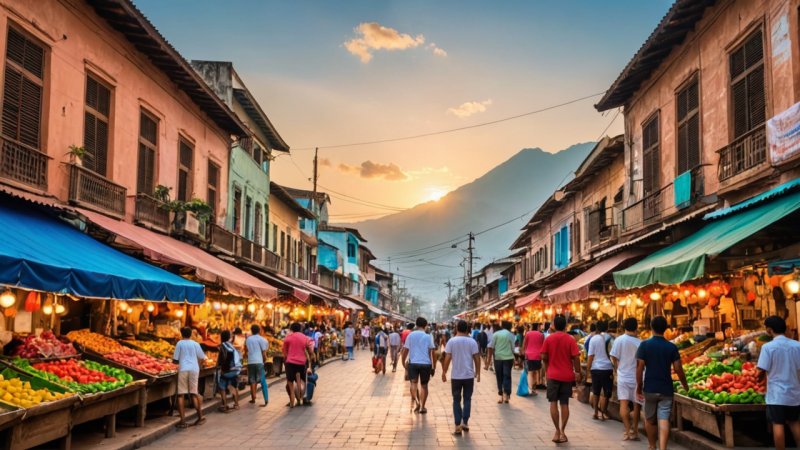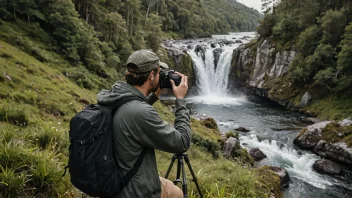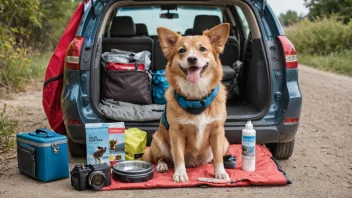Traveling can be one of the most rewarding experiences, broadening our horizons and enriching our lives. However, the excitement of planning a trip can often be overshadowed by the financial burden it can impose. Hidden costs are a common pitfall for many travelers, leading to unexpected expenses that can derail even the best budget plans. In this comprehensive guide, we will explore the various hidden costs associated with budget travel and provide practical tips on how to avoid them while still enjoying your adventures.
Understanding Hidden Costs
Hidden costs in travel refer to expenses that are not immediately obvious or accounted for when planning a trip. These can arise from various sources, including accommodation, transportation, activities, and even dining. Travelers often focus on major expenses like flights and hotel stays, but it's the smaller, often overlooked costs that can accumulate and lead to budget overruns.
Common Areas Where Hidden Costs Arise
- Accommodation: While searching for budget accommodations, travelers may not factor in additional fees such as cleaning fees, resort fees, or taxes that can significantly increase the total cost.
- Transportation: Public transportation can save money, but hidden costs might include tickets that are more expensive than advertised, or the need for transfers that add to travel time and expenses.
- Food and Dining: Eating out can quickly add up, especially if you’re unaware of service charges, tips, or the price of drinks and appetizers that are not initially listed on the menu.
- Activities and Entertainment: Many attractions have additional fees for access to special exhibits, guided tours, or rental equipment that can catch travelers off guard.
- Currency Exchange Fees: Converting money can incur hefty fees if done through unfavorable exchange rates, especially at airports or tourist-heavy areas.
Strategies to Avoid Hidden Costs
Now that we have identified common hidden costs, let's discuss effective strategies to avoid them while traveling on a budget.
1. Research Accommodations Thoroughly
When booking your stay, look beyond the initial price tag. Read the fine print and search for reviews that mention additional fees. Websites like TripAdvisor and Booking.com often have user reviews that highlight these hidden costs. Consider alternatives like vacation rentals or hostels that may provide more transparent pricing policies.
2. Utilize Public Transportation Wisely
Public transport can be a great way to save money, but be sure to familiarize yourself with the system in advance. Check if there are any travel passes that offer unlimited rides for a fixed period. Also, consider downloading local transport apps that may provide real-time updates and fare information to avoid unexpected expenses.
3. Plan Your Meals
To avoid overspending on food, research local dining options beforehand. Look for eateries that are popular with locals rather than tourists, as they often offer better prices and authentic cuisine. Additionally, consider self-catering options if your accommodation allows it, which can substantially cut food costs.
4. Investigate Activity Costs
Before engaging in activities, check for any hidden fees. Websites or guidebooks often provide insights into what is included in the ticket price. Look for free or low-cost attractions, such as parks, museums with free days, or community events, which can enrich your experience without breaking the bank.
5. Be Smart with Currency Exchange
Avoid exchanging money at airports or tourist areas, where rates are usually unfavorable. Instead, use local ATMs, which often provide better rates, or research local banks that offer competitive exchange services. Always inform your bank of your travel plans to avoid any surprises or fees related to foreign transactions.
Creating a Comprehensive Budget
To effectively manage your travel expenses, it’s essential to create a detailed budget that takes into account all potential costs, including those hidden fees. Here’s how to develop a comprehensive travel budget:
1. Set a Daily Spending Limit
Determine how much you can afford to spend each day of your trip. This should include accommodation, meals, transportation, and activities. Use budgeting apps to track your spending in real-time.
2. Account for Unexpected Expenses
Set aside a small percentage of your overall budget for unexpected costs. This buffer can help you avoid stress if unexpected fees arise during your travels.
3. Monitor Currency Fluctuations
If traveling abroad, keep an eye on currency exchange rates leading up to your trip. If possible, exchange money when the rates are favorable to minimize losses due to fluctuating values.
Unique Experiences on a Budget
Traveling on a budget doesn’t mean sacrificing unique experiences. In fact, some of the most memorable moments often come from exploring off-the-beaten-path locations or engaging with local cultures without spending excessively.
1. Volunteer Opportunities
Consider participating in volunteer programs that provide free accommodation and meals in exchange for your time. Organizations like Workaway and WWOOF connect travelers with hosts who need help, allowing for cultural immersion and meaningful experiences.
2. Free Walking Tours
Many cities offer free walking tours led by local guides who work for tips. These tours provide insights into the history and culture of the area, offering an affordable yet enriching way to explore.
3. Local Festivals and Events
Research local festivals or community events during your travel dates. These often provide free or low-cost entertainment and a chance to experience local traditions firsthand.
Conclusion
Traveling on a budget requires careful planning and awareness of potential hidden costs. By conducting thorough research, utilizing public transportation wisely, planning meals, and being mindful of currency exchange, you can minimize unexpected expenses. Furthermore, creating a comprehensive budget and seeking unique experiences can enrich your travels without straining your finances. With these strategies in hand, you can embark on your next adventure with confidence, ready to explore the world while keeping your budget intact.






